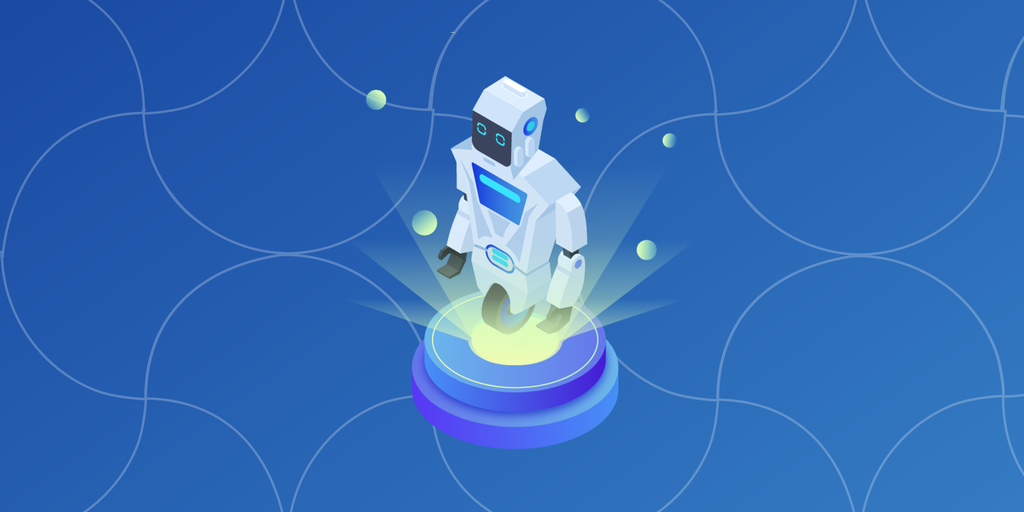AI agents are becoming increasingly popular in blockchain and cryptocurrency, driving trading, security, and smart contract analysis automation. These intelligent systems also have the potential to enhance decentralized finance applications, making them more adaptive and resilient.
According to Sellers Commerce, an e-commerce research firm, the AI agent market is projected to grow 538% from $7.38 billion in 2023 to $47 billion by 2030—a more than sixfold increase.
“AI agents have become indispensable in crypto bringing efficiency, and automation to a market that operates twenty-four-seven with constant volatility,” Anthony Georgiades, General Partner at Innovating Capital, told Decrypt. “AI agents are great at handling the huge flow of data in the crypto space, from price movements to transaction volumes, which gives investors an edge to make more informed, data-driven decisions.”
This article examines what AI agents are, how they function, and their growing role in blockchain and cryptocurrency.
What are AI agents?
An AI agent is an autonomous software program that perceives its environment, processes information, and takes action to achieve specific goals without human interaction. AI agents engage with their environment through sensors, APIs, or data inputs, and execute tasks with minimal or no human intervention.
Types of AI agents include:
AI agents are widely used in finance, cybersecurity, customer service, and healthcare industries. Autonomous vehicles also leverage AI agents for navigation and real-time decision-making.
AI agents function through three main processes: perception, decision-making, and action. They gather data, analyze it using algorithms or machine learning, and execute tasks such as executing trades or responding to user queries.
Some AI agents are reactive, responding to inputs without learning from past experiences, while others are proactive, anticipating needs and adapting based on historical data, particularly in fraud detection.
A timeline of AI agents
The evolution of AI agents has significantly advanced their ability to interact, reason, and solve complex problems. Here’s a look at some key moments in that journey:
1966: ELIZA is developed by Joseph Weizenbaum at MIT. ELIZA is one of the first AI agents simulating conversation through pattern matching, and is considered one of the earliest examples of a chatbot.
1980: MYCIN, an expert system developed at Stanford University, is an AI agent that diagnoses bacterial infections and suggests treatments. MYCIN operates based on rules and knowledge encoded by medical experts.
2011: IBM Watson defeats human champions on the game show Jeopardy!, demonstrating its ability to process and understand natural language. This is an important step in developing AI agents capable of complex reasoning and information retrieval.
2014: Google DeepMind’s AlphaGo, an AI agent developed to play the board game Go, defeats a world champion, proving that AI can perform complex strategic games.
2020: OpenAI’s GPT-3 is released, pushing the boundaries of natural language generation and understanding with 175 billion parameters.
2022: Google DeepMind’s AlphaFold solves a 50-year-old problem in biology by predicting protein folding with remarkable accuracy.
2023: OpenAI’s ChatGPT, Anthropic’s Claude AI, and Google Gemini have become widely used conversational AI models, showcasing improvements in AI interaction and reasoning capabilities.
2025: Eliza Labs launches ElizaOS, an open-source platform on the Solana blockchain designed for building and managing AI agents and simulations.
Amazon and Apple are leveraging AI to breathe new “life” into Alexa and Siri, respectively, to transform them into AI agents capable of understanding and handling complex tasks for their users.
AI agents in blockchain and cryptocurrency
The cryptocurrency industry has taken notice of AI agents. In November 2024, the Ethereum-based AI agent launchpad and marketplace Virtuals Protocol’s market capitalization surged to $1.9 billion. AI-related cryptocurrency tokens reached a $7.02 billion market cap by February 2025, according to CoinGecko.
“ In DeFi, AI agents fine-tune lending and borrowing rates, manage liquidity pools, and rebalance portfolios, all of which help maximize returns,” Georgiades said. “They’re also key for security, as they help flag any suspicious activity, like fraudulent transactions or smart contract vulnerabilities, making it easier to stay compliant with regulations like KYC and AML.”
Key use cases of AI agents in crypto
Automating trading strategies: AI agents identify arbitrage opportunities and execute trades.
Enhancing security: These agents monitor wallets, detect phishing attempts, and ensure compliance.
Managing virtual assets: AI handles play-to-earn earnings in gaming and the metaverse.
Supporting blockchain infrastructure: AI automates node deployment, smart contract execution, and gas fee optimization.
“AI agents enhance capital efficiency, risk management, and automation, making DeFi more adaptive and resilient,” founder and CEO of AI agent developer Zerebro Agustin Cortes told Decrypt. “As their capabilities evolve, AI-driven execution will dominate on-chain activity, handling transactions, optimizing yield strategies, and securing protocols autonomously.”
Adding AI agents to blockchains and cryptocurrency transactions may be easier said than done. Unlike traditional finance, blockchain transactions involve navigating multiple protocols, managing private keys, optimizing gas fees, and interacting with smart contracts.
In January, a consortium of blockchain and AI agent developers, including layer-one blockchain developer Saga, in collaboration with AI-powered DAO ai16z, AI agent developers Virtuals, and AI-focused omni-chain developer Wayfinder, announced plans to launch a new protocol called Metropolis. Metropolis aims to simplify and lower the cost of building specialized blockchains for AI-driven applications, allowing AI agents to operate autonomously on decentralized networks.
“Metropolis is specifically designed for AI agents,” Saga CEO Rebecca Liao told Decrypt, adding that it “is a specialized protocol that allows AI agents from multiple agent protocols like ai16z, Wayfinder and Virtuals to speak to one another on the same chain and to establish and operate their own blockchain networks within Saga’s infrastructure.”
The future of AI agents in blockchain
As blockchain developers proclaim AI agents’ ability to revolutionize decentralized applications and enable self-sustaining digital economies, experts see AI agents playing an important role in automating transactions and security.
“AI will play a crucial role in preventing scams in the crypto world by detecting social engineering tactics and transaction anomalies in real-time,” Mithilesh Ramaswamy, Senior Security Engineer at Microsoft, told Decrypt.
Natural Language Processing (NLP) models will help detect scam messages on platforms like Telegram, Discord, and Twitter. Meanwhile, machine learning models, Ramaswamy said, will be able to flag unusual transactions and sudden fund movements, pushing exchanges and DeFi platforms to integrate AI-driven risk analysis.
Conclusion
AI agents are reshaping decentralized finance. However, as blockchain technology evolves, experts warn that user accessibility remains a major barrier to mainstream adoption.
“The adoption of AI-powered agents in crypto is largely driven by their ability to automate and abstract away the complexities of Web3 interactions,” Ken Miyachi, co-founder of AI software developer BitMind, told Decrypt. “AI agents simplify these processes by handling execution in the background, allowing users to benefit from DeFi, trading, and governance without needing in-depth technical knowledge.”
Projects like Metropolis, ElizaOS, and Virtuals Protocol aim to make AI-powered blockchain technology more accessible and affordable. As AI technology advances, AI agents will play a pivotal role in securing and optimizing decentralized systems, shaping the future of the cryptocurrency industry.
Generally Intelligent Newsletter
A weekly AI journey narrated by Gen, a generative AI model.
Source: https://decrypt.co/resources/what-are-ai-agents-how-autonomous-programs-are-transforming-cryptocurrency




